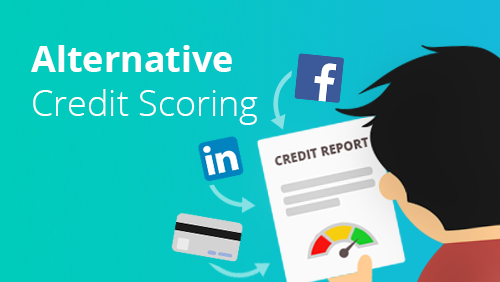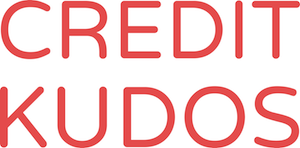Your read progress
Alternative Credit Scoring
5 minute read
Updated 17th September 2025 | Published 23rd June 2017

What is alternative credit scoring?
Most people will be aware of credit scores or reports from “the big three” credit scoring companies - Equifax, Experian, and Callcredit. Between them, they provide the data used by ClearScore, Noddle, and others, to provide their credit scores.
We’ve looked in depth at the credit scores and reports offered by these companies before, in our aim to find which credit report is best. Given that the data comes from only three sources, and is assessed by much the same means, it’s no surprise that a score might be pretty similar across the three.
But these companies all work on the basis of looking at an individual's credit history as a means to determining future creditworthiness. For some people, this approach doesn't help to give a true reflection of their creditworthiness. Those with little to no credit history (e.g. migrants) might find it hard to “get started” with credit, as might those with variable or non-fixed incomes, such as freelancers.
But some alternatives are starting to emerge, and these innovative firms look at more than just an individual’s credit history to make a decision. In today’s world with so many data points available, these companies use big data, machine learning, and AI while looking at things like social media history, bank transactions, and much more to get a more accurate picture of whether or not one is going to be able to pay back credit.
Here’s a few we think are interesting.

Credit Kudos
“Simple, fair, accessible credit”
Credit Kudos analyses an individuals financial transaction history to asses their creditworthiness. By considering spending patterns over time, a picture of the individual’s spending habits, and typical balance can be attained. While a “traditional” credit score might just consider whether a payment was made, late, or missed, Credit Kudos can asses whether or not the individual was financially comfortable at that time, too. Is the customer constantly in overdraft? Or despite lots of outgoings, do they seem comfortable?
They do this by requesting read-only access to your online banking in order to view income and outgoings - which many are still uncomfortable with, but given advances in Open Banking, this view of assessing a person’s spending is likely to become much more common in the coming years.

FriendlyScore
“Connect your social media accounts to get a free social credit score”
FriendlyScore claim to use 820 variables pulled from a customer’s connected social media profiles to build a view of their creditworthiness. While it might be difficult to ascertain what all 820 variables are, they do mention friend circles, and interests as some of the data points they look at.
A lighthearted exaggeration of the system might be - friends with people who’ve liked payday loan companies on Facebook? Sent an angry tweet to your credit card provider? Or shown that you’ve changed job several times on LinkedIn? It’s easy to imagine how these factors can be used to determine that a customer might not be quite as likely to pay back a loan as they claim. Alternatively, someone who is Facebook friends with royalty, who tweets Harrods more than Lidl, and has CEO listed as a job title on LinkedIn, might be deemed more creditworthy by FriendlyScore.

Aire.io
“Your true credit score. You build it. You control it.”
Aire allows consumers to “build their own credit score”, via an interactive virtual interview when applying for credit. Taking an ethical approach to credit scoring, Aire tries to create a complete picture of an individuals creditworthiness, not just a score based on defined factors. Aire assesses things like an individuals occupation, lifestyle, health, and even asks questions which test financial maturity.
Despite the algorithm which underpins Aire being very much machine-led, they’ve made it feel quite “human”, which is refreshing in a world where people can quite literally be defined by just a number...and "computer says no" is increasingly a reality.

Lenddo
“Using non-traditional data to provide credit scoring and verification to economically empower the emerging middle class around the world”
Claiming to use over 12,000 variables for every application for credit, Lenddo looks at social media activity and friend circles, browsing history, even geolocation data pulled from smartphones.
Frequent visits to gambling websites as opposed to current affairs? Lenddo might use that information to help make a decision. Spending £8 on coffee every day? Lenddo might decide you’re financially irresponsible, or it can say this person spends a lot, but knows their financial limits.
The privacy hurdle might be a difficult one to cross - browsing history and location data are highly sensitive, but if it means obtaining credit is more likely, and at a better rate, it might just be tradeoff many will be willing to accept.

Kreditech
“Financial freedom for the underbanked.”
Kreditech claim that 2 billion adults around the world are underbanked and are excluded from mainstream access to credit. Positioning itself as a bridge between pawnbrokers and payday lenders, and credit cards and bank loans, Kreditech uses 20,000 data points, to asses creditworthiness.
Again, taking a holistic approach, and not just “ticking” credit boxes, but building a clear picture of an individual, Kreditech looks at shopping habits, social media circles, and location history to make a more rounded decision. If a customer spends more time at a nearby bar than at home or a workplace, or spends their entire salary on payday and uses short term loans the next week, Kreditech can build a picture of that person's financial responsibility.
Our Take
In a world where “data is the new oil”, it’s easy to imagine that every single part of an individuals online footprint will be used to help make decisions regarding their ability to obtain credit. Lenders also have an obligation to ensure that the money they lend you is "affordable". Looking at more data than the traditional approach of the big three, may help to provide a more rounded view of a persons financial state.
Do these digital footprints mean a dystopian future where credit can’t be obtained just because the guy you met on holiday and added on Facebook went bankrupt, or you accidentally clicked an ad for a payday loan company? Or has creditworthiness long meant more than just a credit repayment history as it does today? Either way, it seems big data will play a bigger part in how all lenders come to view us, and the above companies are leading the way in an exciting field.
Written by Smart Money People Team
As Featured By
Join our mission
We use the power of consumer reviews to help increase trust and transparency in financial services and to deliver industry leading insight and events.
Write a reviewExplore our other topics

News: Awards

News: Industry news

News: Smart Money People news

Guides: Smart money guides

Guides: Smart money tips

Guides: Business guides

Blogs: Money choices

